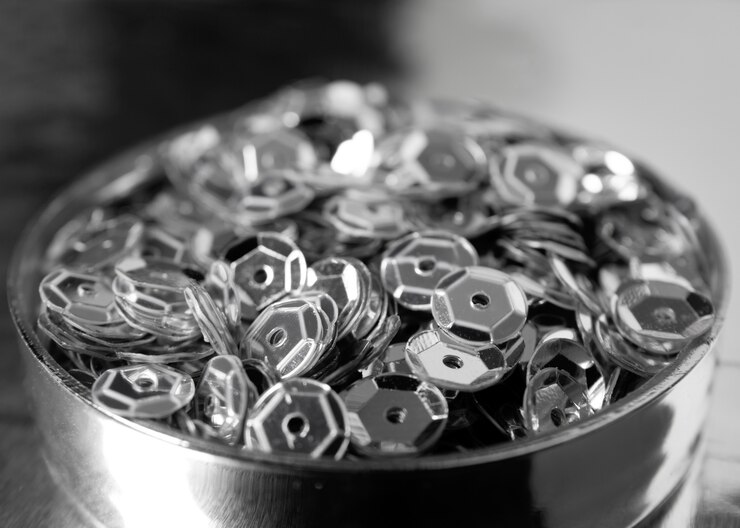In the realm of manufacturing, China stands as a global powerhouse, particularly in the domains of mold making and die casting. These two industries play pivotal roles in various sectors, from automotive to consumer electronics, and understanding their landscape in China is paramount for businesses worldwide.
Understanding Mold Making in China
China Mold making encompasses a wide array of techniques, ranging from injection molds to blow molds. The country boasts a diverse portfolio of molds catering to different manufacturing needs. Moreover, Chinese mold manufacturers adhere to stringent quality standards, often holding certifications such as ISO 9001 and ISO/TS 16949.
Exploring Die Casting in China
Die casting, a highly efficient manufacturing process, finds widespread application in China. This method involves injecting molten metal into a steel mold cavity under high pressure, resulting in intricate and precise components. Chinese die casting facilities leverage cutting-edge technology to ensure consistency and accuracy in production.
Key Players in China’s Mold and Die Casting Industry
Several prominent players dominate China’s mold and die casting landscape. Companies like Plastic Mold and Alu Die Casting are renowned for their expertise and reliability. These industry leaders continuously innovate to meet evolving market demands and maintain their competitive edge.
Factors Driving the Growth of China’s Mold and Die Casting Industry
The growth of China’s mold and die casting industry can be attributed to various factors. Economic stability, robust infrastructure, and access to skilled labor contribute to the sector’s expansion. Furthermore, advancements in technology, such as 3D printing and automation, propel innovation and efficiency.
Challenges and Opportunities
Despite its rapid growth, China’s mold and die casting industry faces challenges, particularly concerning quality control and intellectual property protection. However, these obstacles present opportunities for improvement and collaboration. By addressing these issues, manufacturers can enhance trust and credibility in the global market.
Importance of Choosing the Right Supplier
Selecting the right supplier is crucial for businesses seeking to leverage China’s manufacturing capabilities. Factors such as experience, expertise, and communication play vital roles in forging successful partnerships. Moreover, conducting thorough due diligence and building long-term relationships with suppliers ensure seamless collaboration and product quality.
Case Studies
Numerous success stories highlight the benefits of collaborating with Chinese mold and die casting suppliers. Companies that have chosen reputable partners have achieved cost savings, faster time-to-market, and superior product quality. These case studies underscore the immense potential of China’s manufacturing sector.
Future Outlook
Looking ahead, the future of China’s mold and die casting china industry appears promising. With ongoing advancements in technology and increasing demand for precision-engineered components, the sector is poised for sustained growth. Moreover, initiatives aimed at sustainability and eco-friendliness are likely to shape the industry’s trajectory in the coming years.
Conclusion
In conclusion, China’s mold and die casting industry represent the epitome of manufacturing excellence. With its vast resources, technological prowess, and commitment to quality, China continues to drive innovation and efficiency in global manufacturing. By understanding the dynamics of this dynamic sector and forging strategic partnerships, businesses can unlock limitless opportunities for growth and success.
FAQs
Q: How can I ensure the quality of molds and die-cast components from Chinese suppliers?
A: By conducting thorough due diligence, including supplier audits, certifications, and references, businesses can assess the quality standards of potential partners.
Q: What are some emerging trends in China’s mold and die casting industry?
A: Emerging trends include the adoption of additive manufacturing technologies, advancements in material science, and the integration of IoT and data analytics for process optimization.
Q: Is intellectual property protection a concern when collaborating with Chinese manufacturers?
A: While intellectual property protection is a valid concern, businesses can mitigate risks through contractual agreements, non-disclosure agreements, and working with reputable suppliers with a track record of IP compliance.
Q: How does China’s manufacturing expertise benefit businesses globally?
A: China’s manufacturing expertise offers businesses access to cost-effective production capabilities, streamlined supply chains, and a vast pool of skilled labor, enabling them to remain competitive in the global market.
Q: What steps can businesses take to navigate cultural and language barriers when working with Chinese suppliers?
A: Investing in cross-cultural training, hiring bilingual staff or interpreters, and fostering open communication channels can help businesses overcome cultural and language barriers and build strong partnerships with Chinese suppliers.
Must Read :
- What Are Credit Cards?
- 5 Tips To Begin With The Stock Market
- Trader Joe’s Hours – Locations, Opening And Closing Time

